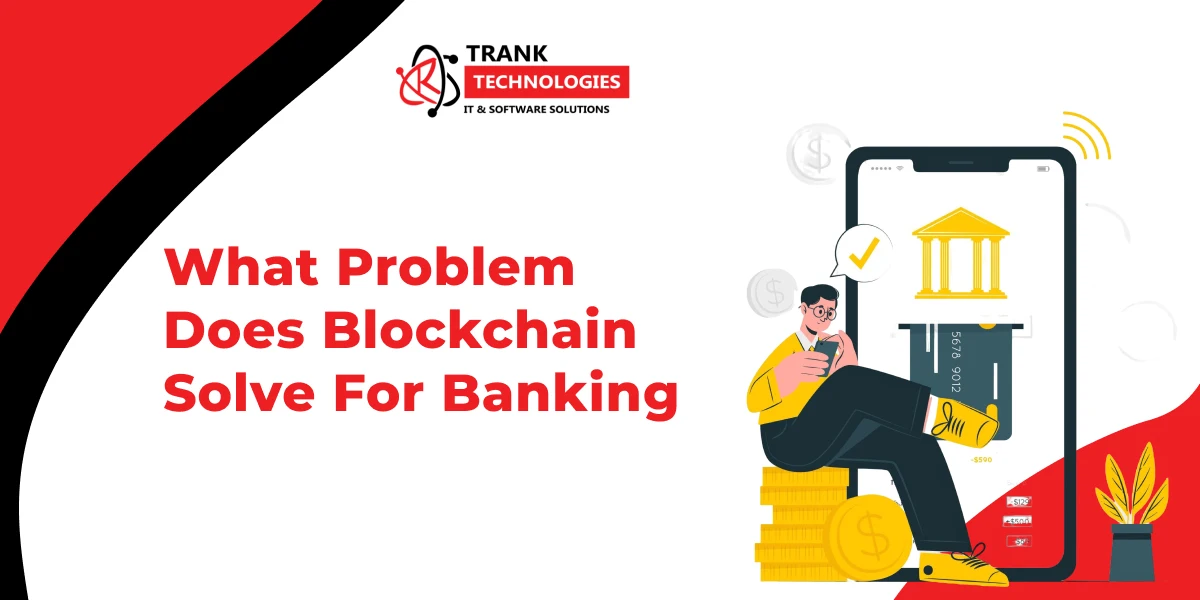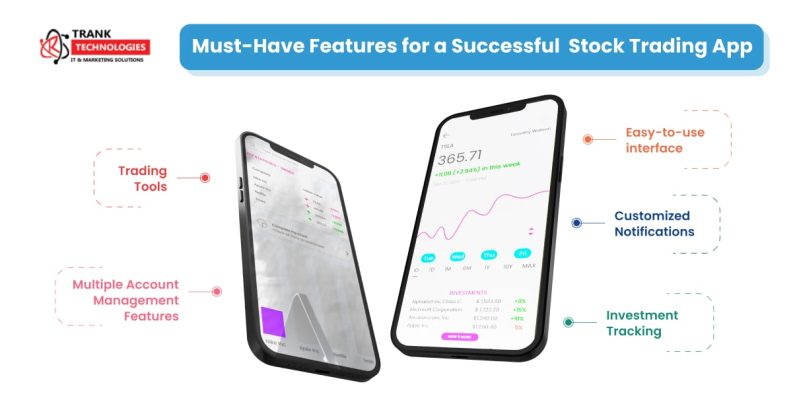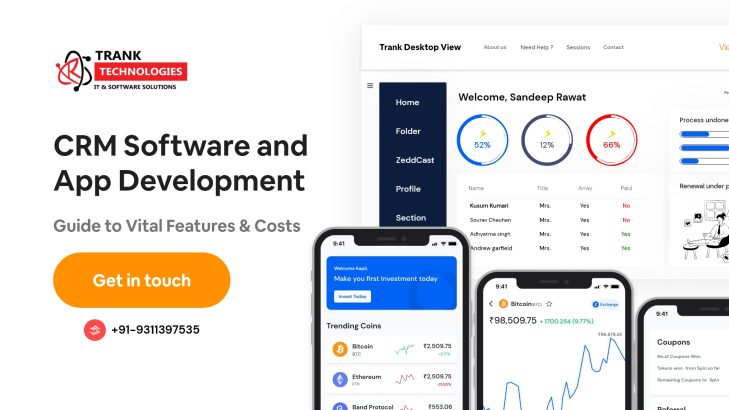
What Problem Does Blockchain Solve For Banking?
Blockchain has been a significant force in today’s digital revolution. Its dramatic impact is why many businesses across industries, including the global BFSI (Banking, Financial Services, and Insurance) market, are adopting blockchain for banking. Blockchain is well-known for its chief characteristics and principles of accessibility, trust, and security.
In this comprehensive guide, we will examine how blockchain technology in banking transforms the monetary industry and how this evolving technology allows institutes to cut operational costs without overseeing the transactions.
What Is Blockchain?
Blockchain is a technology that develops a secure database of digital assets that is entirely online and shareable over public and private networks. The speed at which this blockchain technology can be accessed makes all the difference. Using a decentralized ledger, such information can be accessed quickly and directly, ensuring it is completely transparent and easy to access.
How Is Blockchain Technology In Banking Sector Taking Place And Evolving?
As traditional finance industries become outdated and old-fashioned, fintech companies quickly take over the competition with their decentralized financing and banking platforms. To stay competitive in the coming years, banks look forward to collaborating with companies with blockchain expertise, especially in the finance industry.
Several traditional banks and financial institutions are quickly jumping on the blockchain bandwagon. For example. These are Bank of America, Commonwealth Bank of Australia, Federal Bank of India, ICICI Bank, Reserve Bank of India, Westpac Bank, and Cambridge Global Payments.
Potential Use Cases Of Blockchain For Banking Or Financial Institutions
Banks and blockchain systems are now interlinked. This technology offers several opportunities apart from just cross-border transactions. Additionally, blockchain for banking revolutionizes how financial services operate and serve clients. Let’s evaluate other use cases of blockchain technology in banking.
1 – Transaction Clearance System
An average bank transfer usually takes up to three days to recompense a transaction. This process creates problems for consumers and troubles banks’ logistical processes. This is where the need for blockchain for banking comes into the picture. Blockchain performs differently as a decentralized ledger that publicly keeps track of transactions.
2 – Prevention From Fraud & Provides Security
Banks usually track those who own debt, stocks, or commodities to buy or sell them. To get this information, Banks connect with multiple exchanges, brokers, etc. The involvement of these parties delays the process while making it inaccurate, fraud, and data breaches. Financial institutions can use blockchain technology in banking to eliminate the layers of any failure.
3 – Customer KYC
Usually, banks may take up to three months to execute all the KYC (Know Your Consumer) processes, including identity verification through photo, address, and biometrics verifications. In addition to the fact that the KYC process by banks is time-consuming, it also costs banks a lot.
As blockchain technology has been introduced in banking, the KYC process has easily transformed. Banks and blockchain systems can be beneficial together. With blockchain technology, banks can securely verify customer identities and track real-time transaction trails, reducing fraud risk.
4 – Efficient Loans & Credits Facilities
Usually, we know that banks tend to underwrite loans based on credit reporting systems because, for example, if you apply for a loan, the bank first elevates the risk they may have to suffer in case you fail to pay. Banks first overview the credit score, debt-to-income ratio, etc., and then take the loan approval decision.
Blockchain for banking comes with an alternative lending system that can provide an efficient and secure method of giving personal loans to customers. Due to the use of blockchain technology in banking and a decentralized registry of payment history, it is now easier for consumers to apply for loans and get them approved.
5 – Digital Identity Management
Blockchain technology in banking provides a secure framework to verify and manage digital identities effectively. This advantage of blockchain for banking reduces the risk of identity theft and potential fraud. Financial industries can use blockchain-based identity solutions to validate customers’ identities. Also, Sharing identity information across different financial institutions would be effortless.
6 – Regulatory Reporting
The nature of blockchain also supports regulatory reporting and compliance by maintaining a tamper-proof record of dealings and regulatory data. Banks and blockchain systems can be helpful together. Banks and other organizations can use blockchain technology in the finance industry to automate collecting and reporting regulatory requirements. As a result, banks can reduce the manual reporting they must do. Additionally, the blockchain ensures data integration while keeping a record of all transactions that occur on the blockchain.
Also Read: How Top Software & IT Company In NYC, New York Work?
Challenges Of Implementing Blockchain Technology In Banking
Converging banks and blockchains has numerous advantages. However, that doesn’t mean there are no drawbacks. Implementing blockchain technology in banking presents some challenges.
1 – Budget
Budget is one of the main challenges for many banks when exploring blockchain for banking. Because this unparalleled technology is unexplored, many of you may need to figure out how much it will cost to adopt. How much does it cost to adopt blockchain technology in banking? Generally, there is no clear-cut answer for it. The cost is wholly based on the type of blockchain services you want to offer.
2 – Security Concerns
As we know, blockchain allows complete transparency for transactions. However, criminals can use it for hacking, private critical attacks, and identity theft. Banks and other financial institutions must acquire an in-depth understanding of blockchain technology to resolve this problem. Upon understanding how to fix these vulnerabilities, the BFSI market (Banking, Financial Services, and Insurance) can employ the technology to seek public acceptance once the BFSI market understands how to do so.
3 – Technological Challenges
The list of challenges to adopting banks and blockchain together includes dealing with the legacy systems and outdated technologies of banks. The banking system relies on suboptimal technology.
To resolve this issue, banks must separate their outdated technological infrastructure from the latest blockchain technology. To accomplish this goal, they will need to collaborate with companies that offer seamless integration of blockchain services.
Conclusion
Blockchain technology in banking is bringing many innovations to the finance industry. These include lowered transaction costs, better data verifications, and more. To fully benefit from blockchain technology and utilize its full potential for the banking industry, banks must outsource a blockchain development company with experience in blockchain development. There is no doubt that the company needs to have a sound understanding of top-notch approaches to integrating blockchain technology with banking domains to be successful.







